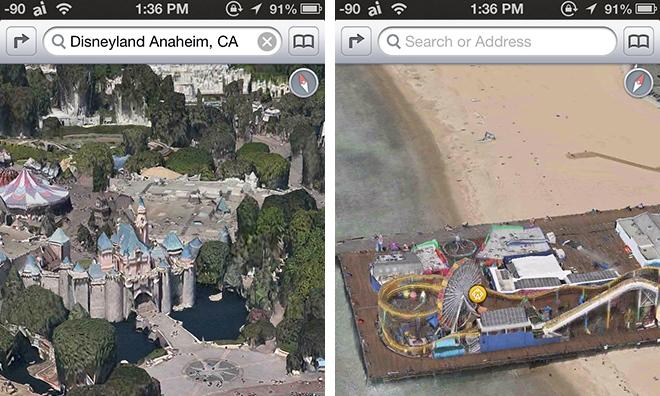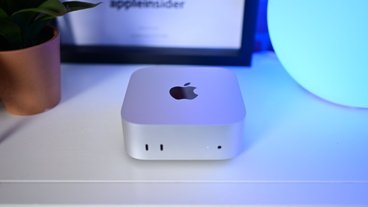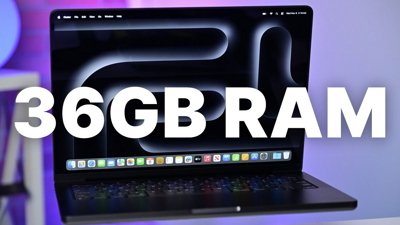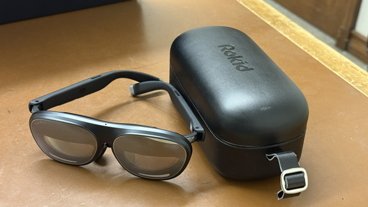In its ongoing patent infringement complaint against Google, location services company Skyhook Wireless asserts that Google co-founder Sergey Brin disparaged Skyhook's technology in discussions with Apple.
Apple abandoned Skyhook and Google location services in 2010, and launched its own Maps app in 2012.
Skyhook's beliefs were expressed in a recent court filing detailed this week by intellectual property expert Florian Mueller of FOSS Patents. In the documents, Skyhook asserts that Brin told Apple representatives of Google's unhappiness that the iPhone maker was using Skyhook's technology.
The filing includes a quote from late Apple co-founder Steve Jobs speaking at the Macworld 2008 keynote. In his presentation, Jobs explained that the first-generation iPhone did not include a chip for GPS, but location services were still possible because of data provided by both Google and Skyhook Wireless.
In particular, Jobs singled out the technology from Skyhook as "really cool."Skyhook claims that Google co-founder Sergey Brin disparaged their technology to Apple. The company seeks documents from Brin related to those alleged discussions.
"What they have done is they've driven the U.S. and Canada in little cars with antennas on them and GPS receivers in them, and they've mapped Wi-Fi hotspots," Jobs said. "They are now doing Europe and starting in Asia, and they've got 23 million Wi-Fi hotspots in their database."
Using beacons from those Wi-Fi hotspots allows a user's location to be triangulated, thus determining current location without the need for a dedicated GPS radio.
The fact that Apple used Skyhook's technology was apparently upsetting to Google, which the lawsuit says prompted Brin to contact Apple representatives. The suit asserts that Google sought to handle location services for the iPhone so the company "could collect the user's Wi-Fi information."
"Having apparently disparaged Skyhook's technology to Apple, Google proceeded to then launch the same Wi-Fi based location technology by infringing Skyhook's patents," the court motion reads.
Skyhook believes that any potential discussions between Brin and Apple representatives following the 2008 Macworld keynote would be relevant to its lawsuit. That's why Skyhook filed the motion to compel Google to provide "certain documents" apparently held by Brin.
The filing does not go as far as to say that Google or any comments alleged to have been made by Brin led to Skyhook being removed from the iPhone. Apple ditched both Skyhook and Google location services and began relying on its own databases starting with the release of iOS 3.2 for the first-generation iPad in April of 2010, before debuting its own full-fledged mapping solution separate from Google Maps with last year's launch of iOS 6.
As for Skyhook's lawsuit against Google, Mueller expects the case will go to trial in 2014 without an out-of-court settlement between the two companies.
 Neil Hughes
Neil Hughes














 AppleInsider Staff
AppleInsider Staff
 Christine McKee
Christine McKee




 William Gallagher
William Gallagher










22 Comments
Do no evil, Google.
They never do /s
Cry me a river, Sergey.
Are we forgetting the bigger Google scandal over Skyhook, from two years ago? http://www.theverge.com/2011/05/12/google-android-skyhook-lawsuit-motorola-samsung/ Google refused to certify devices as Android Compatible unless they dumped Skyhook and used Google's service instead. Google wanted to collect that valuable geographic info themselves, and they weren't so "open" that they were above leaning on manufacturers to kill Skyhook. (And Google's service may have been better (?) and this may be a fine move to make... just don't pretend to be "open" while you do it...) P.S. I wish Apple had a feature that Skyhook used to: you could manually ADD a WiFi hotspot to the public location database rather than waiting for it to be found automatically. I visit peoples' homes that are set back from the street quite a bit, and so they get no drive-by location data from iPhone users. My lone iPhone is apparently not enough. With Skyhook, I submitted the coordinates via an online form, and from then on, iOS apps (weather, trip-planning, finding nearby businesses) worked great at those houses: location services worked indoors. Then Apple dumped Skyhook, and now my devices can no longer pinpoint me unless I step outside or find a lucky window. Apple once said they were planning to add a manual-entry feature for this, but I've never heard of it happening.
I wonder when Google's sleaziness is going to catch up with its stock price?